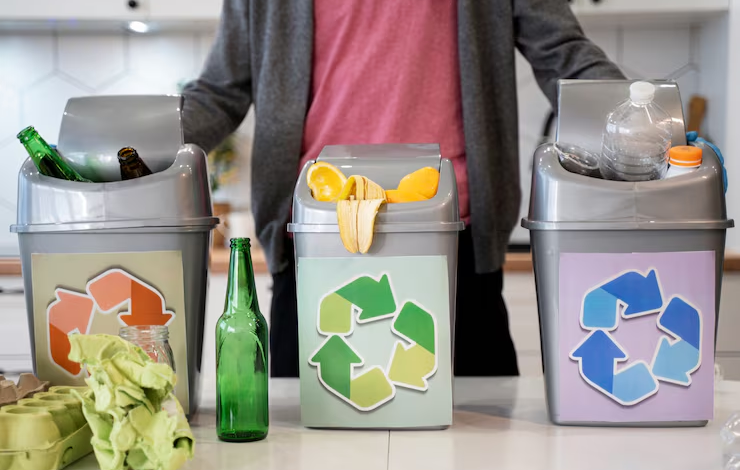Waste Disposal Made Easy: Simple Steps for Households and Businesses

Managing waste responsibly has become a crucial part of modern life. Whether you’re running a busy household or a thriving business, the waste generated daily can quickly become overwhelming if not handled properly. The good news is that effective waste disposal doesn’t have to be complicated. By following a few straightforward steps, both households and businesses can manage their waste more efficiently, reduce environmental impact, and save costs in the long run.
In fact, services make the process of waste disposal even easier by providing convenient skip bin hire options tailored to different needs. From small domestic cleanups to large-scale commercial projects, having access to reliable disposal solutions can transform how waste is managed. But beyond professional services, there are also many simple steps individuals and organizations can take themselves.
Why Is Proper Waste Disposal Important?
Before diving into practical steps, it’s essential to understand why waste disposal is such an important topic. Waste that isn’t properly managed can have serious consequences for both the environment and human health.
Some of the key reasons proper waste disposal matters include:
- Environmental Protection – Reduces pollution, conserves natural resources, and prevents contamination of soil and water.
- Health and Safety – Proper disposal minimizes exposure to hazardous substances.
- Aesthetic Value – Clean surroundings improve quality of life and property appeal.
- Economic Benefits – Recycling and efficient management can lower costs and create jobs.
- Legal Compliance – Businesses must adhere to strict regulations regarding waste disposal.
Understanding these benefits provides the motivation to adopt better habits at home and in the workplace.
How Can Households Manage Waste Effectively?
Households are responsible for a significant portion of waste produced globally. From food scraps to packaging, daily activities generate materials that require proper disposal. Thankfully, families can adopt simple steps to minimize waste and manage it more effectively.
Strategies for households include:
- Reduce and Reuse – Buy in bulk, avoid single-use plastics, and repurpose items.
- Segregate Waste – Separate recyclables, organic waste, and general rubbish.
- Composting – Convert kitchen scraps and garden waste into nutrient-rich compost.
- Use Local Collection Services – Take advantage of council-provided recycling and green waste bins.
- Plan Purchases Wisely – Avoid overbuying groceries or products that create excess packaging.
Small changes in household behavior can collectively make a massive difference in reducing waste volume.
What Steps Can Businesses Take for Better Waste Disposal?
Businesses often produce large quantities of waste, from office paper to industrial by-products. Proper waste disposal not only ensures compliance with regulations but also enhances reputation and operational efficiency.
Key steps businesses can take include:
- Conduct a Waste Audit – Identify the types and quantities of waste produced.
- Implement Recycling Programs – Provide bins and encourage staff participation.
- Partner with Waste Management Services – Use professional companies for large-scale disposal.
- Educate Employees – Train staff on waste reduction and recycling practices.
- Embrace Digital Tools – Reduce paper use with digital documents and cloud storage.
By adopting these practices, businesses can reduce costs, meet sustainability goals, and appeal to environmentally conscious customers.
What Role Does Recycling Play in Simplifying Waste Disposal?
Recycling is one of the simplest yet most effective ways to make waste disposal easier. By giving materials a second life, recycling reduces the demand for raw resources and keeps waste out of landfills.
Some commonly recycled materials include:
- Paper and Cardboard – Transformed into new packaging and products.
- Glass – Reused in new bottles, jars, and construction materials.
- Metals – Aluminum and steel are highly recyclable with endless reuse potential.
- Plastics – Depending on type, plastics can be recycled into containers, textiles, or even construction products.
- Electronics – Components can be refurbished or repurposed to recover valuable metals.
Households and businesses alike should prioritize recycling as part of their overall waste management strategy.
See also: What Legal Factors Should You Consider Before Buying a Business?
How Does Composting Benefit Both Homes and Businesses?
Organic waste such as food scraps and garden clippings often make up a significant portion of total waste. Instead of sending these materials to landfill, composting offers a practical and eco-friendly alternative.
The benefits of composting include:
- Reduces Landfill Waste – Keeps biodegradable waste out of landfills.
- Creates Natural Fertilizer – Produces nutrient-rich compost for gardens and landscaping.
- Cuts Greenhouse Gas Emissions – Prevents methane production from organic matter in landfills.
- Saves Money – Reduces the need for chemical fertilizers.
- Educational Value – Encourages environmental responsibility among families and employees.
With simple compost bins or larger-scale commercial composting systems, this method makes waste disposal both sustainable and cost-effective.
What Types of Waste Require Special Handling?
Not all waste can be handled through standard disposal methods. Some categories require extra care due to their hazardous nature or environmental impact.
Examples include:
- E-Waste – Old computers, phones, and electronics containing heavy metals.
- Medical Waste – Needles, sharps, and contaminated materials from healthcare facilities.
- Chemical Waste – Paints, solvents, and industrial chemicals.
- Asbestos – Requires licensed removal due to health hazards.
- Batteries – Contain harmful chemicals that must be processed separately.
Households and businesses should always seek professional help when dealing with hazardous or regulated waste types.
How Can Technology Simplify Waste Disposal?
Advancements in technology have transformed waste management practices, making them more efficient and accessible. Both households and businesses can take advantage of these innovations.
Some examples of technology in waste disposal include:
- Smart Bins – Sensors alert when bins are full, optimizing collection schedules.
- Mobile Apps – Track local collection days, recycling rules, and disposal centers.
- Recycling Robots – Used in large facilities to sort materials accurately.
- Data Analytics – Helps businesses identify waste patterns and improve efficiency.
- Online Booking Services – Platforms for hiring skip bins or arranging pickups.
Technology not only makes waste disposal easier but also supports more sustainable practices.
When Should You Consider Professional Waste Disposal Services?
While households and businesses can handle much of their waste independently, there are situations where professional services are necessary.
Professional services are most useful when:
- Dealing with Large Volumes – Construction or renovation projects generate significant waste.
- Handling Hazardous Materials – Professionals ensure compliance with regulations.
- Managing Commercial Waste – Businesses benefit from tailored collection services.
- Needing Convenience – Skip bins and collection services save time and effort.
- Focusing on Sustainability – Professionals often prioritize recycling and eco-friendly methods.
Hiring experts ensures safety, efficiency, and peace of mind.
What Mistakes Should Be Avoided in Waste Disposal?
Even with good intentions, many households and businesses make common mistakes that hinder effective waste disposal. Recognizing these errors can help prevent unnecessary costs and environmental harm.
Common mistakes include:
- Mixing Waste Types – Contaminates recyclables and increases landfill contributions.
- Ignoring Hazardous Waste Rules – Leads to fines and health risks.
- Overfilling Bins – Causes collection issues and additional charges.
- Throwing Away Reusable Items – Wastes resources that could be repurposed.
- Not Keeping Records – Businesses may face compliance issues without proper documentation.
By avoiding these mistakes, waste management becomes smoother and more efficient.
How Can Communities Work Together to Improve Waste Disposal?
Waste management is not just an individual responsibility—it also requires community participation. When neighborhoods and businesses collaborate, the impact is far greater.
Ways communities can work together include:
- Organizing Clean-Up Drives – Encourage local residents to collect and dispose of waste.
- Educational Campaigns – Raise awareness about recycling and proper waste practices.
- Shared Resources – Community compost bins or recycling centers.
- Incentive Programs – Reward households and businesses that minimize waste.
- Partnerships with Local Councils – Improve collection systems and recycling initiatives.
Collective efforts make waste disposal easier, more efficient, and more impactful.
Conclusion: How Can You Make Waste Disposal Simple and Effective?
Effective waste disposal doesn’t have to be complicated. By reducing, reusing, recycling, and composting, households and businesses can drastically cut down on the waste they generate. For larger or more complex projects, professional services like Hop Skip and Dump provide reliable and eco-friendly solutions that simplify the entire process.
The key lies in understanding your waste, adopting responsible habits, and leveraging available resources—from local council programs to advanced technology and community initiatives. By taking these simple steps, waste disposal becomes not just a necessity but an opportunity to protect the environment, save money, and contribute to a cleaner future.





